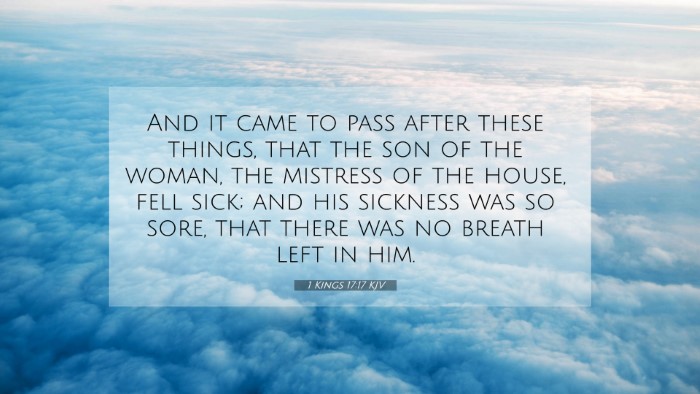This section features a detailed cross-reference designed to enrich your understanding of the Scriptures.
Below, you will find carefully selected verses that echo the themes and teachings related to 1 Kings 17:17 KJV. Click on any image to explore detailed analyses of related Bible verses and uncover deeper theological insights.
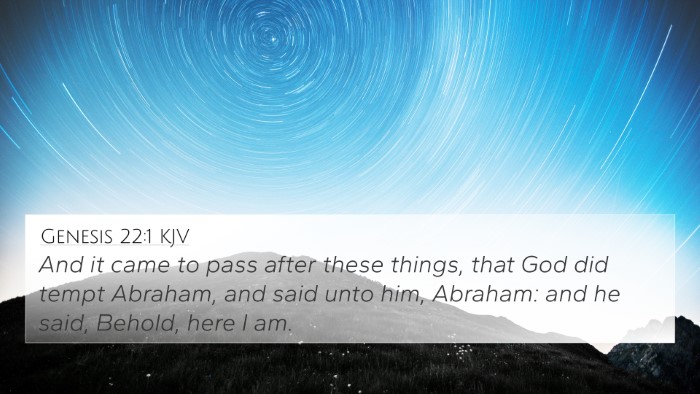 Genesis 22:1 (KJV) »
Genesis 22:1 (KJV) »
And it came to pass after these things, that God did tempt Abraham, and said unto him, Abraham: and he said, Behold, here I am.
 1 Peter 4:12 (KJV) »
1 Peter 4:12 (KJV) »
Beloved, think it not strange concerning the fiery trial which is to try you, as though some strange thing happened unto you:
 James 2:26 (KJV) »
James 2:26 (KJV) »
For as the body without the spirit is dead, so faith without works is dead also.
 James 1:12 (KJV) »
James 1:12 (KJV) »
Blessed is the man that endureth temptation: for when he is tried, he shall receive the crown of life, which the Lord hath promised to them that love him.
 James 1:2 (KJV) »
James 1:2 (KJV) »
My brethren, count it all joy when ye fall into divers temptations;
 John 11:3 (KJV) »
John 11:3 (KJV) »
Therefore his sisters sent unto him, saying, Lord, behold, he whom thou lovest is sick.
 Zechariah 12:10 (KJV) »
Zechariah 12:10 (KJV) »
And I will pour upon the house of David, and upon the inhabitants of Jerusalem, the spirit of grace and of supplications: and they shall look upon me whom they have pierced, and they shall mourn for him, as one mourneth for his only son, and shall be in bitterness for him, as one that is in bitterness for his firstborn.
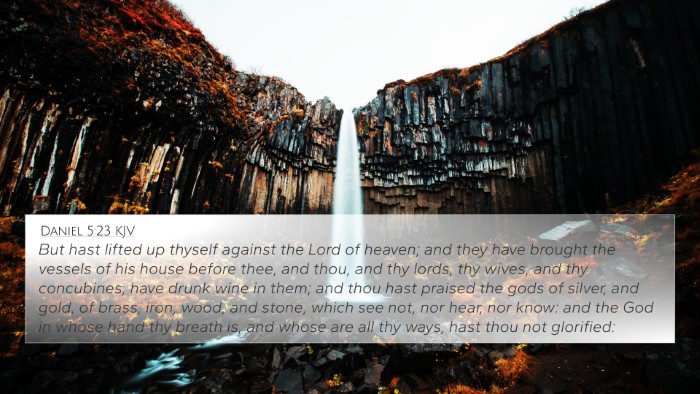 Daniel 5:23 (KJV) »
Daniel 5:23 (KJV) »
But hast lifted up thyself against the Lord of heaven; and they have brought the vessels of his house before thee, and thou, and thy lords, thy wives, and thy concubines, have drunk wine in them; and thou hast praised the gods of silver, and gold, of brass, iron, wood, and stone, which see not, nor hear, nor know: and the God in whose hand thy breath is, and whose are all thy ways, hast thou not glorified:
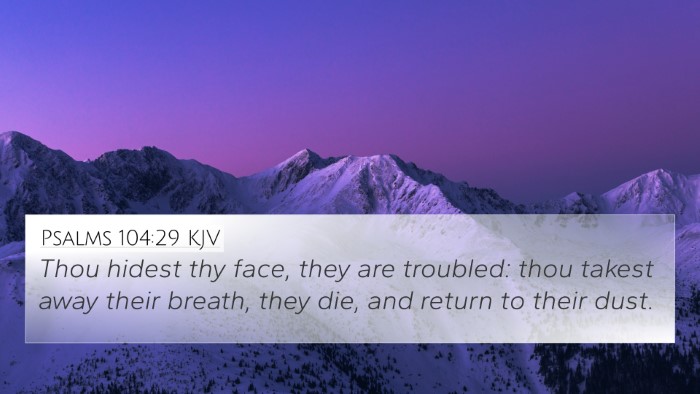 Psalms 104:29 (KJV) »
Psalms 104:29 (KJV) »
Thou hidest thy face, they are troubled: thou takest away their breath, they die, and return to their dust.
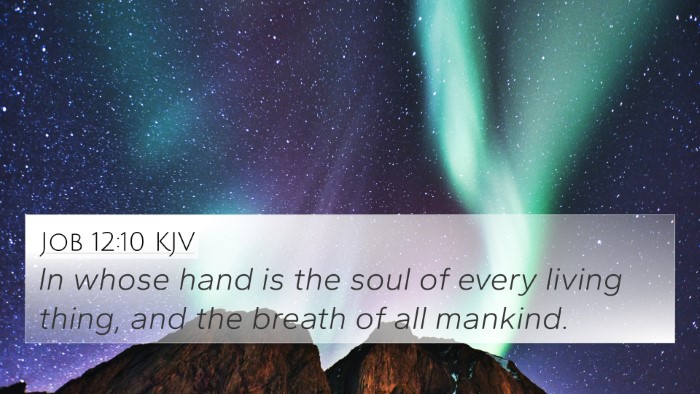 Job 12:10 (KJV) »
Job 12:10 (KJV) »
In whose hand is the soul of every living thing, and the breath of all mankind.
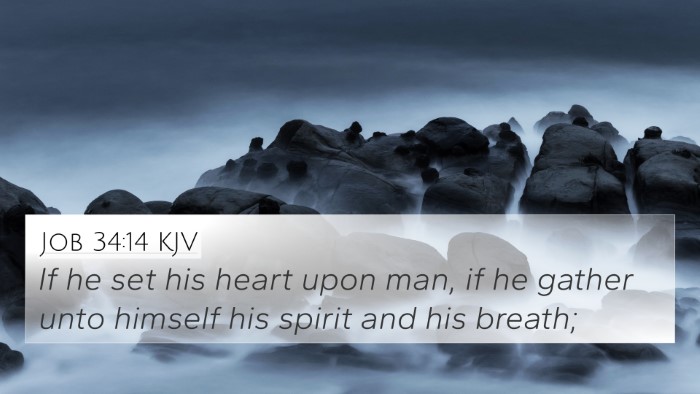 Job 34:14 (KJV) »
Job 34:14 (KJV) »
If he set his heart upon man, if he gather unto himself his spirit and his breath;
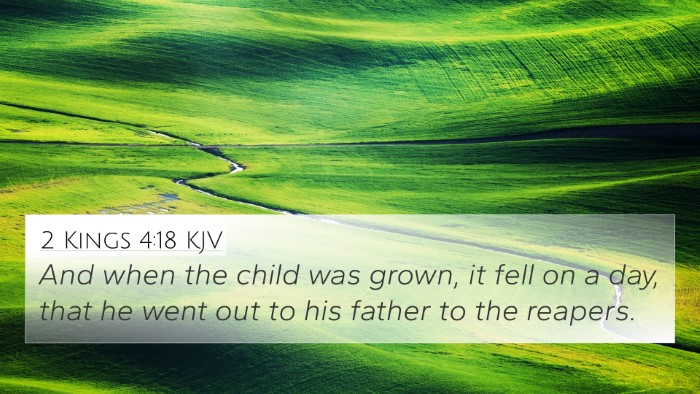 2 Kings 4:18 (KJV) »
2 Kings 4:18 (KJV) »
And when the child was grown, it fell on a day, that he went out to his father to the reapers.
 1 Peter 1:7 (KJV) »
1 Peter 1:7 (KJV) »
That the trial of your faith, being much more precious than of gold that perisheth, though it be tried with fire, might be found unto praise and honour and glory at the appearing of Jesus Christ:


